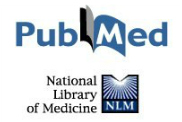Efficacy of dietary hempseed oil in patients with atopic dermatitis.
Abstract
BACKGROUND:
 Hempseed oil is a rich and balanced source of omega-6 and omega-3 polyunsaturated fatty acids (PUFAs). Anecdotal evidence indicated that dietary hempseed oil might be useful in treating symptoms of atopic dermatitis.
Hempseed oil is a rich and balanced source of omega-6 and omega-3 polyunsaturated fatty acids (PUFAs). Anecdotal evidence indicated that dietary hempseed oil might be useful in treating symptoms of atopic dermatitis.
PATIENTS AND METHODS:
Dietary hempseed oil and olive oil were compared in a 20-week randomized, single-blind crossover study with atopic patients. Fatty acid profiles were measured in plasma triglyceride, cholesteryl and phospholipid fractions. A patient questionnaire provided additional information on skin dryness, itchiness and usage of dermal medications. Skin transepidermal water loss (TEWL) was also measured.
RESULTS:
Levels of both essential fatty acids (EFAs), linoleic acid (18:2n6) and alpha-linolenic acid (18:3n3), and gamma-linolenic acid (GLA; 18:3n6) increased in all lipid fractions after hempseed oil, with no significant increases of arachidonic acid (20:4n6) in any lipid fractions after either oil. Intra-group TEWL values decreased (p=0.074), qualities of both skin dryness and itchiness improved (p=0.027) and dermal medication usage decreased (p=0.024) after hempseed oil intervention.
CONCLUSIONS:
Dietary hempseed oil caused significant changes in plasma fatty acid profiles and improved clinical symptoms of atopic dermatitis. It is suggested that these improvements resulted from the balanced and abundant supply of PUFAs in this hempseed oil.
- PMID:
- 16019622
- [PubMed – indexed for MEDLINE]
-
Publication Types, MeSH Terms, Substances
Publication Types
MeSH Terms
- Adult
- Cannabis*
- Cross-Over Studies
- Dermatitis, Atopic/diet therapy*
- Dermatitis, Atopic/metabolism
- Dietary Fats, Unsaturated/administration & dosage*
- Fatty Acids, Essential/blood
- Female
- Humans
- Lipids/blood
- Male
- Middle Aged
- Olive Oil
- Plant Oils/administration & dosage*
- Single-Blind Method
- Water Loss, Insensible/physiology
Substances
LinkOut – more resources
Full Text Sources
Other Literature Sources
Medical



